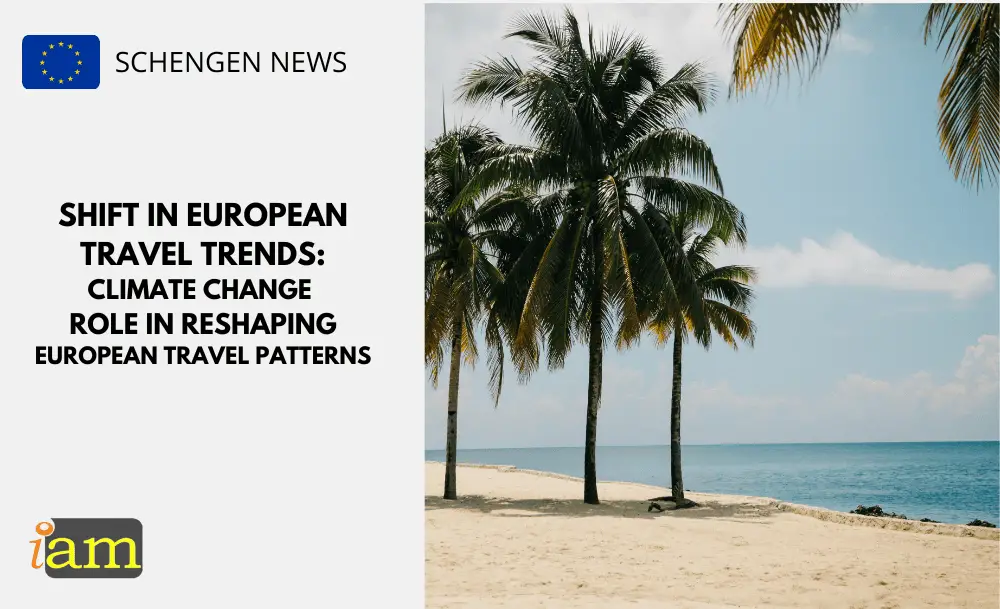Shift in European Travel Trends: Climate Change Role in Reshaping European Travel Patterns

With temperatures in Europe at an all-time high this summer, travel preferences are predicted to transform in the coming years.
Experts estimate that July will become a less popular month for vacationing in Europe, with April emerging as the best time to travel.
In late July, the European Commission adopted a new set of guiding principles aimed at assisting member states in refreshing and implementing comprehensive national climate strategies. The commission’s decision was based on a report by the Intergovernmental Panel on Climate Change, containing numerous pessimistic assessments concerning the future of summer tourism in Europe.
The document titled “Regional Impact of Climate Change on European Tourism Demand” analyses data from 269 European destinations spanning over 20 years.
According to the report, while sun and sea were formerly vital aspects of summer vacations in Europe, the heat has made these elements less desirable to tourists. Traditional southern European resorts are expected to lose some of their attraction as a result of this shift in the coming years.
Italy, France, Portugal, Cyprus, and Greece are predicted to be among the least favoured destinations. Greece might be hit hardest, facing the potential loss of almost one in ten tourists.
Related articles:
- Unused Schengen Visas No Longer Valid for Entry To Bulgaria
- Spain Will Not Grant Visa Waiver To Kosovo In 2024
- British Airways Extends eVouchers Until Next Year
- Non-EU Must Register For Entry-Exit System (EES) – ETIAS
- EU Warning: ETIAS Not Yet Operational
- Post-Brexit Travel: What Changes When Croatia Becomes Part of Schengen
April is the New July
This shift in tourist preferences is also set to introduce new peak travel periods to Europe.
April is anticipated to become a more popular time for journeys, with travel during this period projected to increase by 8.89%. In contrast, July is expected to witness the sharpest decline, with an average decrease of 5.72%.
According to the European Travel Commission, this scenario is already becoming a reality, as the number of travellers intending to vacation in Greece, Spain, or Portugal from June to November of this year has decreased by 10% due to abnormal temperatures.
“European resorts need to move away from ‘ultra-seasonal’ tourism. The less reliance on the high season in July and August, the less resort destinations will be dependent on weather factors and anomalies,” the expert report emphasises.
Do you have plans to visit Greece? Talk to us in the comment section below. Or if you need more advice on the above, contact us for further travel & immigration advice.
Check out the deals we have found below and tell us your travel plans.
Check out the offers and discounts from:
And because of the pandemic, don’t forget to get your travel insurance, which will cover you for flight disruptions and pandemic related matters.
IaM can help with your visa application to Europe, the United States, the UK & other countries
If you need help with a US visa, a UK Visa, or a visa to Europe, including help with appointment booking obligations, IaM can help. For more information and advice on US immigration, UK immigration law and US visa applications or if you need any help or assistance please, reach out to your Visa Coordinator at IaM.
Some of our posts include affiliate links. If you choose to purchase any of these products, we might get a small commission. For more information, check out our TOS.











